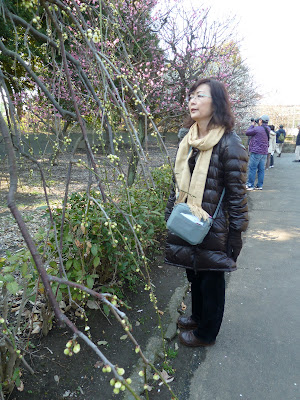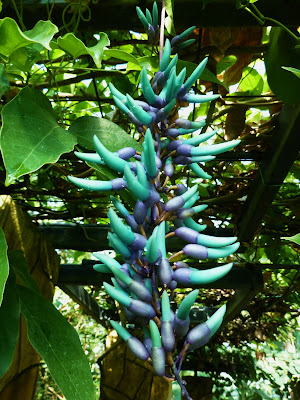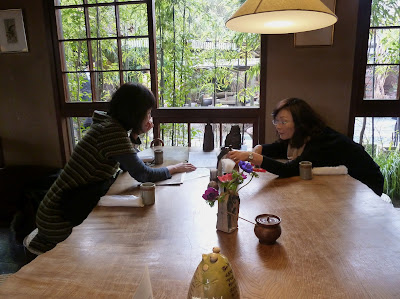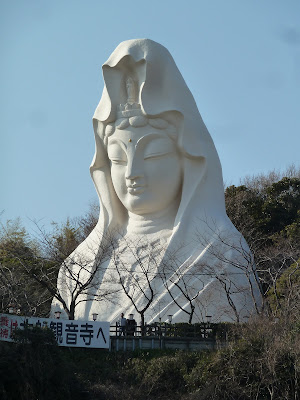The countdown's begun....the time for us to leave Japan is getting closer and closer and closer!
Tomat te kudasai!
Stop the clock.....we want a bit more time!!
A farewell party in Tokyo with Linda, who goes the day before us, started the show. Perched on the 50th floor of La Tour Shiodome Building, Hamamatsucho overlooking the bright lights of the sprawling metropolis of Tokyo, we reminisced about our experiences and adventures in Japan. It's not easy leaving this country.....it's such an endearing place!
Linda had said bring something to eat but don't bring too much alcohol. Unable to carry alcohol in our freight home (company policy!!) it has to be used up! Obviously no one listened....she ended up with more than she started with and we ended up taking ours home again. There was whisky, sake, plum wine liqueur, Danny's special margaritas, beer, white wine, red wine and more sake! And food...well it was ridiculous how much there was....Japanese, Indonesian, Mexican, Indian, Louisiana American and......! So much delicious food! Oishi desu! It's a sad time as the team breaks up and sees people heading in all directions....PNG, Australia, America and, of course for us, retirement!! Naturally, the Japanese workers will remain in Japan as well as some expatriates for a little while longer. Thank you, thank you Linda for hosting such a great night!
Rumiko san you are such a sweet lady and I wish we didn't have to part.......there are so many more Japanese Hash Runs left in me! Maybe one day we will meet again in Alabama if we all visit Danny there!
For me, the next very sad farewell was with my beautiful language teachers, Ritsu san and Toshiko san. Hoping to see early cherry blossoms they had planned an outing isho ni to visit the Miura Peninsula but unseasonably cold weather has delayed the start of the blossoms. Instead, they decided to take me on an outing to Ofuna, just south of Yamashitacho, where they promised to show me some places that usually only the Japanese go. Ofuna is in the city of Kamakura but, interestingly, half of the Ofuna Station is in Kamakura city and the other half is in Yokohama. A silly fact maybe but a fact nonetheless!
We'd arranged to meet at Yokohama Station on the Tokaido line platform at car one by 10am! As it's such a crazily busy station you need to be very specific if you want to guarantee meeting up. Once in Ofuna we caught a taxi to Taya no Dookutsu (Taya Cavern) which is actually in Yokohama, but closer to Kamakura both geographically and historically. The cavern is in the precinct of Josenji Temple, Sakae-ku, Taya-machi. From about the year 1200 to 1700, Shingon Buddhist monks gradually excavated this underground maze of tunnels to an imposing scale as a site for spiritual training. The Shingon Mikkyo sect was a Japanese sect who practiced mystical Buddhism. Disciples of those times would fast for twenty one days, sit in religious meditation and dig in the cliffs by hand. There are a total of seventeen caves. After paying an admission fee we were given a candle on a wooden holder outside the entrance which we then lit inside the doorway. Damp, silent corridors led to small, domed meditation chambers with walls and ceilings carved with fantastic creatures and Buddhist images. Finally, we found ourselves in the spring room with a great turtle and birds carved on the walls.
 |
| Taking photos was prohibited so this shot has been imported from the internet. |
The cavern is carved out of a solid sheet of clay stone rock. This solidity enabled the cave to survive the Great Kanto Earthquake of 1923 with only minimal damage. The total length of the cavern is 1500 metres but only 400 metres is actually open to the public. Many passages, although visible, are blocked off but it is easy to see that the caves are like a spider web.
Fortunately for me, I had two excellent tour guides, Toshiko and Ritsu, who stopped and explained the meaning of the carvings in each chamber. Even they had difficulty reading a lot of the information and for me there was certainly nothing in English. In the spring chamber we placed an index finger in a small stream of water coming from the wall. It's believed that if you have a part of your body you'd like fixed then with the index finger you rub the water on the site and you will be cured. Toshiko rubbed it on her head to make her brain better able to think! I rubbed the water on my thumb which I'd injured skiing....I guess time will tell!! It's amazing that this incredible place is not on the normal tourist itinerary as it is so old and fascinating. A hidden Japanese treasure!
 |
| This photo shows the stream of sacred water where we dipped our index finger! |
Each paver outside was carved with an item on the menu. This was my tile depicting 'Soba noodles with tempura'.
I was particuarly fascinated with the flooring in the toilets. Handmade tiles depicting animals, flowers and shapes were laid randomly to create a beautiful mosaic floor. Initially, I think Ritsu was a little surprised at my interest but she soon understood why I was taking photos of the toilet floor!
After lunch we caught another taxi to the Kenritsu Flower Centre Ofuna Botanical Garden (Ofuna Flower Centre). The flower displays were lovely and we spent a very pleasnt time wandering through each of the different gardens and hot house displays.
 |
| Ritsu san inspects the buds! |
 |
| Toshiko san enjoys the beautiful fragrance! |
 |
| A very unusual plant! |
We passed through the station and wandered down the busy street on its eastern side where we made a few small purchases in yet another Japanese china shop and enjoyed a delightful Japanese afternoon tea.
Arriving back at Yokohama Station, it was a very sad final farewell for the three of us. I found it hard to turn and walk away from my lovely Japanese friends, Ritsu and Toshiko. In fact, I actually turned back for one last hug and then made my way through the busy station with tears rolling down my face. I'd had a really lovely day.
Watashi no tomodachi arigatou gozaimasu!

























Hi :)
ReplyDeleteI'm hoping to live in Yokohama at some point.
How much on average would you say an apartment your size would be to rent (in yen)?
x Alice
Dear Alice,
DeleteYokohama would be a great choice. Where we lived we had great access to the waterfront and many beautiful places. It is just a little less hectic than Tokyo also. I can't recall how much our apartment cost....it was unusually large and was between 800,000 and 900,000 yen I think! We also leased our furniture from Tokyo Lease located in Roppongi. Leyton House has a wide choice of apartments available, some our size but many on other floors were smaller. Thanks for reading my blog I hope you enjoyed it.Jenny